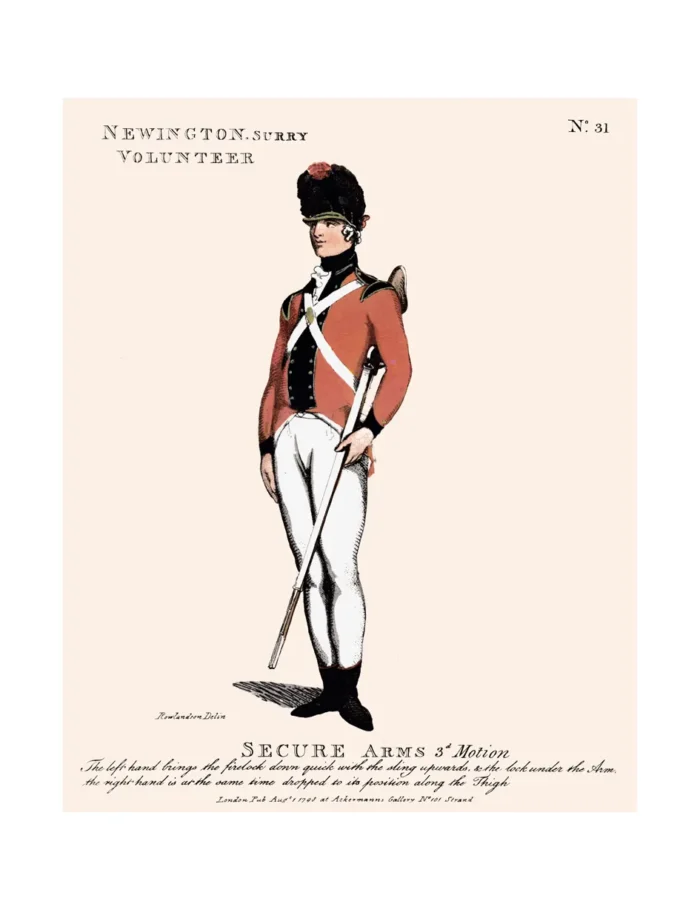No. 31 Newington, Surrey, Volunteer
£15.00
Newington Parish (scroll down for a more detailed Description)
The first reprints of the 1798 aquatints by Thomas Rowlandson (published by Rudolph Ackermann) published in 1972 by Hugh Evelyn Limited.
Image size is 20.5 x 25.5 cm [8” x 10”] against a light greyish orange background (c. RGB fcf2e1) impressed on medium high white matt cartridge paper of c. 120 g/m2.
Print size: c. 26.2 x 33.7 cm [17” x 12 ¾”] may vary slightly from printers’ cut 50 years ago
Details of London Wards and Parishes provided by © the British Library
We offer thanks to the Trustees of the British Library and British Museum and Wikipedia for some text (and map outlines
Print is STANDARD size – shipping is the same for 1 to 10 prints (based on largest print size in your order) – see Shipping & Returns
Who were the Loyal Volunteers ? See here
In stock
Description
Newington is a district of South London, just south of the River Thames, and part of the London Borough of Southwark. It was an ancient parish and the site of the early administration of the county of Surrey. The area remained as a farming village with a low level of population until the second half of the 18th century. In William Shakespeare‘s time, there was a theatre called Newington Butts. Newington gained in importance with the creation of the Westminster Bridge in 1750 and the associated improvements of London Bridge which required a series of new roads across St George’s Fields to interconnect the routes from them and allow traffic from the Georgian West End to travel south and to Southwark without transiting through the City. These roads converged at a junction where there was a blacksmith’s forge and inn called Elephant and Castle which then became a name to signify the area. New roads brought development opportunities. The local landowner, Henry Penton (Member of Parliament (MP) for Winchester), started to sell some of his farmland. The 19th century brought more dense speculative house building, and some philanthropic provision too. The Trinity House Newington Estate, laid out on property the institution was left in the seventeenth century, became a high class residential district which is still largely in existence.
Additional information
| Weight | 0.0121 kg |
|---|---|
| Dimensions | 25 × 35 cm |





